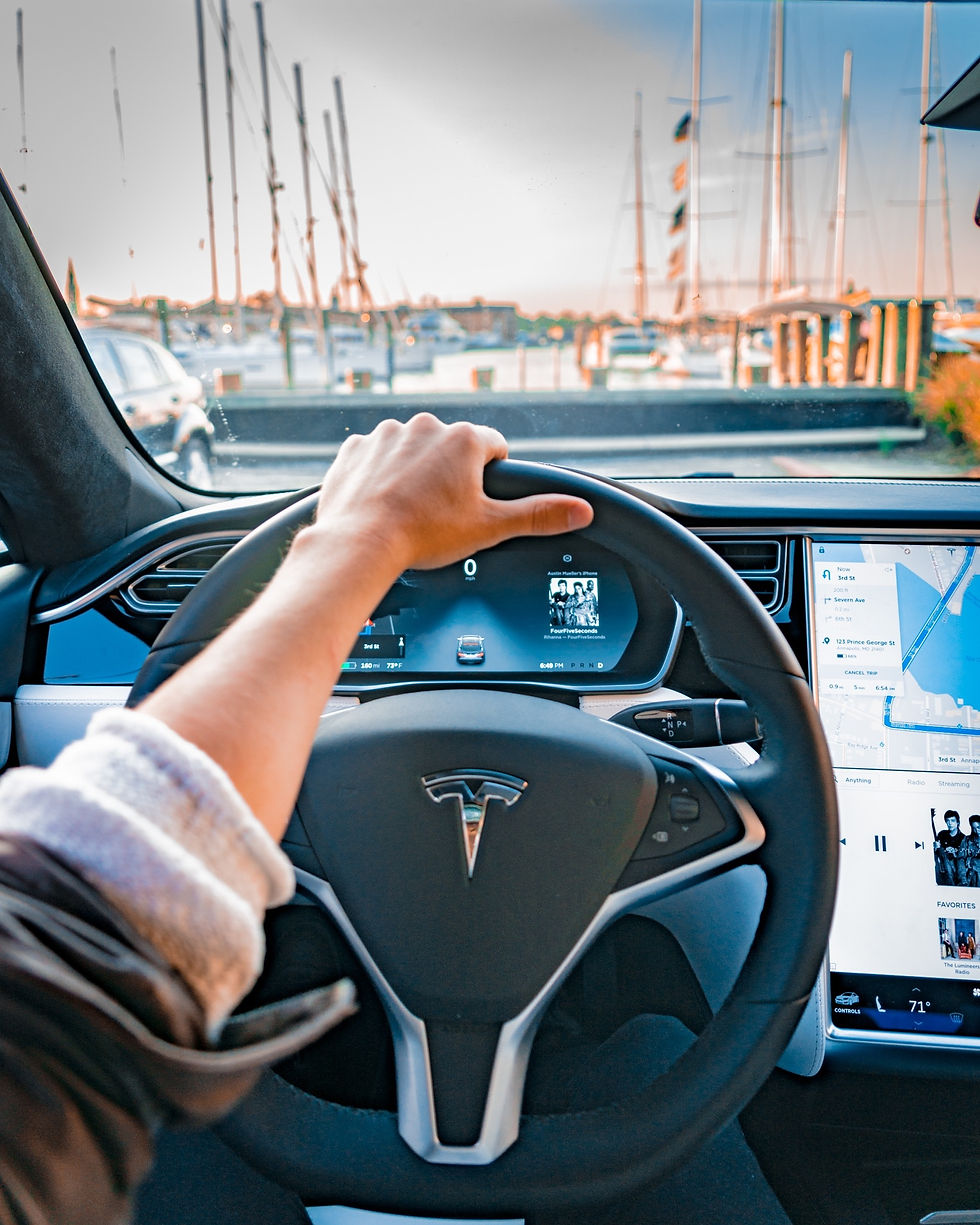Company cars, tax and benefit in kind
- Chris Thorpe

- Jun 3, 2025
- 5 min read
Updated: Jul 28, 2025

Chris Thorpe ATT CTA explains the key tax issues to consider when allowing employees to use their company cars and vans for private use from NI to benefits in kind charges.
When an employer’s car is made available for the private use of an employee, the income tax and National Insurance (NI) implications are different from an employee receiving a cash salary – the receipt of a car is a common benefit in kind (BiK).
Income tax and NI
The level of income tax and NI is determined by the list price (not purchase price) of the car which is then subject to a percentage based on the car’s CO2 emissions – a 4% surcharge is added to diesel cars not meeting the RDE2 emissions standard.
The maximum rate is 37%, but the rate could be as low as 2% for cars with zero emissions.
Hybrid cars attract lower rates though they are also dependent upon the battery range – for those cars which can travel 130 miles or more, the 2% rate applied in 2024–25, 5% to those travelling between 70–129 miles, 8% for those travelling 40–69 miles, 12% for 30–39 miles and 14% for those which can travel less than 30 miles.
For petrol engine cars with 50g/km emissions or below, the 14% also applies with the rate going up by 1% in 5g/km increments.
These rates gradually increase each year, making cars more and more expensive.
In 2025–26, the 2% rates became 3%, with 16% being the rate for petrol cars with 50g/km or less; by 2027–28, these rates will be 5% and 18% respectively.
When calculating the benefit, capital contributions of up to £5,000 from the employee can be deducted from the cost of the car, reimbursement of the value of the benefit can also be deducted from the BiK.
In addition, periods of 30 days or more where the car was unavailable to the employee can also be deducted from the value of the benefit.
NI is paid on the value of the benefit – but only by the employer via Class 1A (15% from April 2025).
If fuel is provided for private journeys, a fixed benefit of £28,200 (2025–26) will attract the same percentage as that of the car and be charged to income tax and NI – so the provision of private fuel can be as expensive as the car itself.
If the employee reimburses the employer for the private element of fuel using the HMRC Approved Mileage Rates in full, the benefit is nullified – but it must be fully reimbursed for the benefit to be removed.
There is no income tax or NI charge if the car is a ‘pool car’, ie, available to and used by multiple employees, any private use being merely incidental and the car being usually kept at the employer’s premises overnight.
Given the expense of a company car, and almost the same again incurred with receiving private fuel, it may be more cost-efficient for an employee to use their own car for business purposes (as well as private) and claim 45p per mile for the first 10,000 business miles (and 25p per mile thereafter).
This allowance covers the cost of fuel and maintenance. Which option is more tax effective depends on what the company car is and how many private and business miles the employee will undertake.
Vans and other vehicles
The rules surrounding list price and CO2 percentages only apply to cars, ie, anything that is not a ‘goods vehicle’, a motorcycle, an invalid carriage, or a vehicle not commonly used (and unsuitable for use as) a private vehicle.
If the vehicle is a van or ‘goods vehicle’, ie, something whose construction is primarily suited to the conveyance of goods or burdens, then there is a separate set of rules for BiK: the benefit is simply a flat rate of £4,020 for 2025–26 with a flat fuel benefit of £769.
What constitutes a van can sometimes be a tricky question; a rule of thumb is that if the van can carry people as passengers behind the driver, ie, there are windows and a second row of seats can be in place, it may well be regarded as a car.
The judgment of the Court of Appeal in Payne (Coca-Cola) v R & C Commrs [2020] BTC 19 held that VW Kombi and Vauxhall Vivaro vans were cars for income tax purposes; the construction of the vehicle is determined at the stage of being made available – not how it is subsequently used by the owner or how it looks.
The fact that these vans could be swiftly adapted for multi-use, ie, the second row of seats could be taken out/folded down and the bulkhead moveable, was not enough to satisfy the ‘primary use’ criteria on which means ‘first and foremost’ used for carrying goods.
Motorbikes are neither cars nor vans, so the private use of these vehicles is subject to the same rules as for any of the employers’ assets, ie, the employee is taxed on its annual value which is 20% of market value when it was made available.
Double cab pick-ups
In the October 2024 Budget, it was announced again that the payload test will be discontinued and double cab pick-ups would be subject to the goods vehicle tests for BiK purposes if purchased or ordered on or after 6 April 2025.
Existing double cab pick-ups, ie, those purchased before 6 April 2025, can retain their van status until 5 April 2029 or sale (if earlier).
VAT fuel scale charge
For businesses running company cars, they can reclaim the input VAT on the fuel provided to their employees, but they are required to take into account any private use of that fuel.
The VAT road fuel charges provide a fixed amount to deduct from the VAT input claims based upon the car’s CO2 emissions. Those rates are updated every 1 May, and the figures for 2025 are 5.7% lower than those of the previous year.
Capital allowances
Cars with CO2 emissions of 50g/km or less qualify for main pool writing-down allowances (18%), with those beyond that level qualifying for the special rate of 6%.
Cars cannot qualify for the annual investment allowance – but other vehicles like vans and motorbikes can. Likewise, cars cannot qualify for full expensing under corporation tax.
New and unused electric/zero-emission cars can qualify for 100% first year allowances for employers until April 2026; the supply of electric car charging stations attracts 100% allowances for the employers and is a tax-free BiK for employees (even if just being reimbursed for the cost).
About the author
Chris Thorpe LLB (Hons) ATT CTA (Fellow) TEP is technical officer at the Chartered Institute of Taxation (CIOT) and is a regular contributor to Croner-i
.png)



Comments